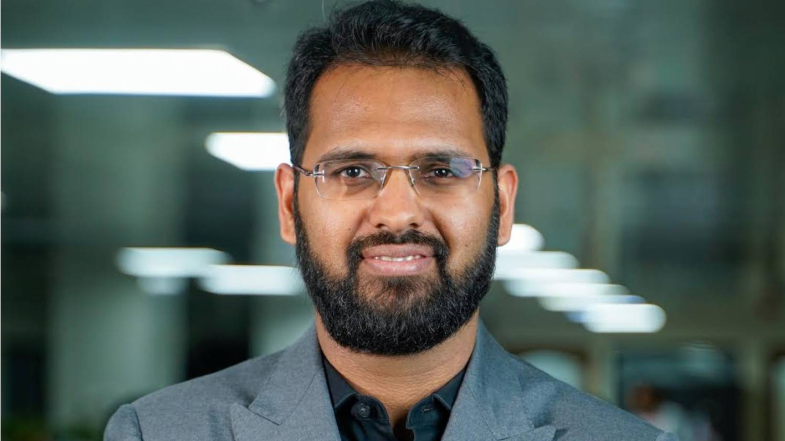Molecular diagnostics, once limited to research, is now a clinical tool thanks to tech advances and point-of-care solutions like Truenat®. WHO-endorsed, it's boosting early disease detection, especially in rural areas. India now leads with AI, innovation, and startup support.

Shiva Sriram, President of Molbio Diagnostics Ltd
Shahid Akhter, Consulting Editor, FEHealthcare, spoke to Shiva Sriram, President of Molbio Diagnostics Ltd, to figure out how PCR and molecular diagnostics have become far more relevant and significantly decentralized and more accessible today.
Earlier, molecular diagnostics was mostly used in research labs. How has it now become a routine tool in clinical practice?
Over the years, molecular diagnostics has always been known as the gold standard way of testing. It has been available for more than 3 to 4 decades now but has never been largely used for a clinical application. It has remained confined as a research tool, and the only reason for that has been lack of access.
The polymerase chain reaction technique (PCR) in diagnostics was always used in centralized settings. As a technology, it was very expensive and highly infrastructure dependent, needing skilled manpower, which made it available only in centralized labs in tier one cities. And hence, it always remained limited to confirmatory testing and was not adopted as a routine tool. However, in recent years, with advancements in technology—especially post-COVID—there has been a lot of awareness created around the need for early diagnosis.
How has the advent of point-of-care diagnostics transformed healthcare delivery in rural and underserved areas?
Until not more than a decade ago, point-of-care diagnostics did not exist. Most rural settings had no form of access to diagnostics. In recent years, there has been a strong push to make testing available at the patient’s bedside—especially for infectious diseases—so that treatment can be started on time.
In molecular diagnostics today, there are technologies developed in India itself that are being used in primary health centers in rural areas. This is enabling early diagnosis of diseases like tuberculosis, hepatitis, HIV, and dengue, which was previously unavailable in such settings. That is clearly improving the quality of healthcare being delivered to patients.
Access to diagnostics has increased significantly due to point-of-care technologies, not just through expansion, but by connecting collection to detection at the source.
How has the WHO endorsement of Truenat positioned India as a leader in medical device innovation?
Truenat is a WHO-endorsed technology. It is currently the only technology in the world that is approved by WHO for use in primary care centers for tuberculosis. Based on that, several countries have already introduced the platform into their national TB programs. It is being deployed in various countries across Africa, Southeast Asia, and South America. And as we go along, it is also being introduced into developed markets like Europe and the US. So, it represents a huge export opportunity for India. India has not traditionally been known for its innovation in medical devices or technology. It has been more recognized for pharma and vaccines—as a hub for generic manufacturing. With Truenat, we have managed to put India on the global map for innovation and technology.
How is AI transforming the delivery of healthcare, particularly in low-access primary care settings?
AI is already playing a major role in the way healthcare is being delivered, especially at the primary care level in areas where access is a challenge. It will obviously never replace traditional delivery of care—doctors, healthcare workers, and so on will always be required. What AI essentially does is play an enabling role. It allows for a much wider deployment of technology, which would otherwise not be possible through human intervention alone.
Beyond tuberculosis, how is Molbio expanding its point-of-care solutions to address other healthcare challenges?
Molbio was started in the year 2000 with a vision to decentralize access to quality diagnostics. One of the ways we intended to do that was by developing a portable point-of-care molecular diagnostic platform—which is what we achieved with Truenat. It was a long 15-year journey of R&D, completely indigenously conceptualized, designed, developed, and scaled for manufacturing. The aim was to make molecular diagnostics—and in particular, RT-PCR—available to the masses for multiple diseases. That is something we have now achieved at scale, not just in India but globally. The focus of the company is to provide point-of-care solutions that can expand access to quality diagnosis. We’ve done that through our flagship Truenat platform, which is now expanding into other areas of healthcare.
How does Molbio’s experience in overcoming R&D challenges help guide start-ups and early-stage developers in the healthcare space?
Our own in-house development has been extensive. We work on many collaborations—both with new technologies being developed by indigenous entrepreneurs as well as institutions. That is another way we aim to scale new technologies. We’ve started our own accelerator program called EDGE, through which we are setting up a Center of Excellence in Bangalore. We intend to invite as many startups and early-stage developers as possible to come and work in collaboration with us at our centers. We’ve already gone through a very long development curve. We’ve made our mistakes and learned from them. Now, we want to pass on that knowledge and know-how to new entrepreneurs and focus on ensuring that Indian technologies scale successfully in the future—with global impact.
By continuing you agree to our Privacy Policy & Terms & Conditions
